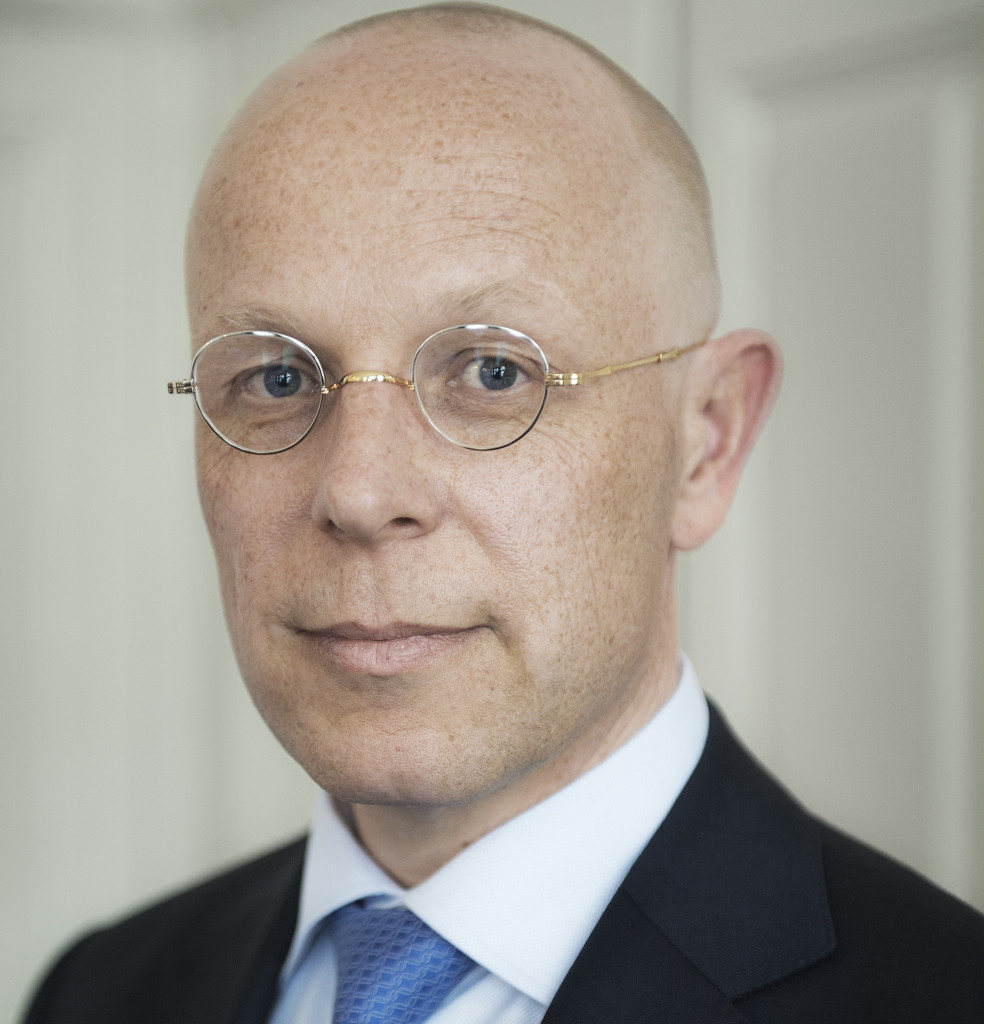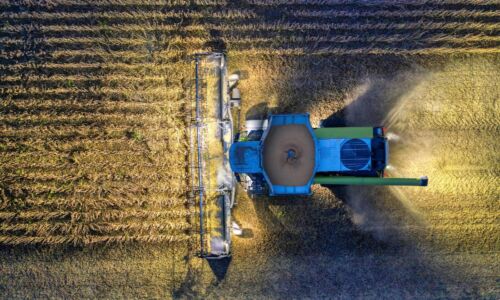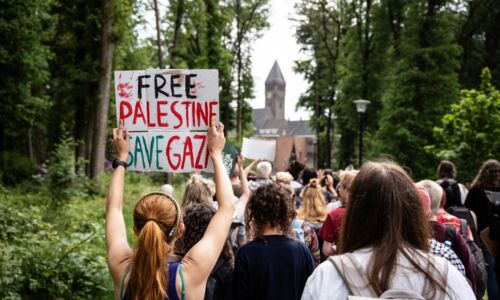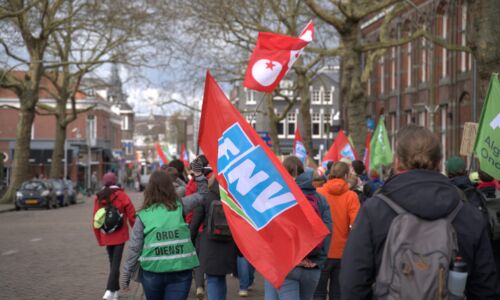University wants to take action to help Ukrainian refugees
-
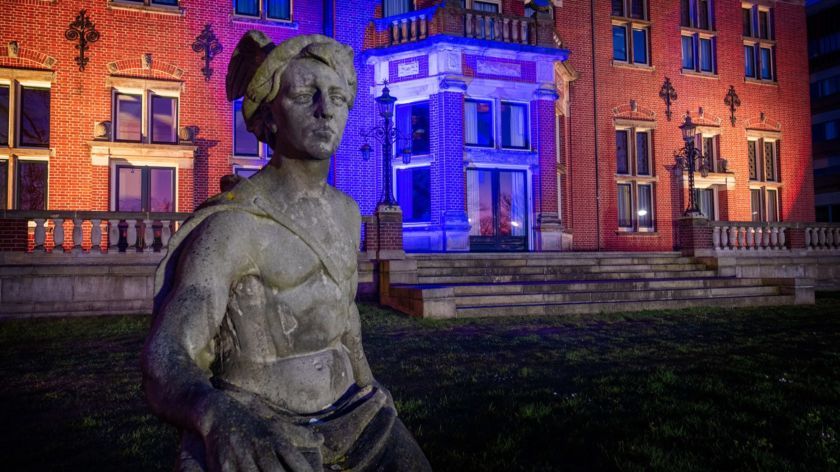 Huize Heyendael in yellow and blue light. Photo: Dick van Aalst
Huize Heyendael in yellow and blue light. Photo: Dick van Aalst
Radboud University wants to do something for Ukrainian refugees. This was said by president of the Executive Board Daniël Wigboldus last Monday during the Joint Assembly. 'We are closely in conversation with the municipality of Nijmegen.'
At the beginning of the Joint Assembly, which is still held via Zoom, Daniël Wigboldus gave extensive attention to the war in Ukraine. ‘As the Executive Board, we are deeply affected by what is happening in Ukraine,’ said the president.
At Radboud University there are about 35 students with the Ukrainian nationality or with Ukraine as their birthplace. ‘But other students and staff as well, for example from Russia, are touched by the suffering’, said Wigboldus.
According to the chairman, the university has already provided a lot of support in the last 12 days in response to the war. On February 25th, a day after the Russian invasion of Ukraine, an e-mail was sent to Ukrainian students and employees, as well as to students and employees with Russian nationality. ‘We told them they can contact us if they feel the need to,’ says Wigboldus.
At the Faculty of Science, where relatively many Ukrainian students study, a meeting was organised last week. ‘The need to come into contact with each other there seems large,’ said Wigboldus.
Frozen
In context of the war, the president also talked about the international partnerships Radboud University has. Those are not only with scientists and research labs in Ukraine. The university also has memoranda of understanding with universities in Moscow and Saint-Petersburg, and a partnership with the Dutch institute in Saint-Petersburg.
‘We need to maintain personal relationships with Russian scientists’
Wigboldus reiterated that Radboud University agrees with the position of The Guild, an international association of cooperating research universities, to support Ukrainian students and staff wherever possible. The university also endorses the statement by the Universities of the Netherlands and the Royal Netherlands Academy of Arts and Sciences (KNAW) to freeze ties at the institutional level with Russian institutions for the time being.
However, in line with chair of KNAW Ineke Sluiter, Wigboldus called for maintaining personal relationships with Russian scientists. ‘They will be very important in rebuilding ties with Russian institutions after the war.’
Emergency fund
Students and staff with concerns, questions or initiatives about Ukraine can contact the university via [email protected]. ‘We have set up a separate team to refer people with concerns to the right place quickly, but also to coordinate initiatives,’ says president of the board Daniël Wigboldus. ‘Our student counsellors and psychologists also pay extra attention to this. Students and staff with financial needs can make use of our regular emergency fund.’
To make an extra statement, Huize Heyendael (historical building on campus next to the Radboudumc, ed.) been lit up by yellow and blue light at night recently. The university has also ordered Ukrainian flags, although it is not easy at the moment to get these delivered quickly.
Student exchanges with Russian universities are currently frozen. Students from Radboud University who have been studying at the Dutch Institute in St. Petersburg this semester have already travelled back to Nijmegen via Helsinki. ‘We will keep in touch with them to talk about their travel expenses,’ says Wigboldus.
Refugee shelter
On behalf of the Works Council Nico ten Brink asked whether Radboud University could do something to help with sheltering Ukrainian refugees – according to the UNHCR, yesterday more than 1.5 million Ukrainians had already fled the country, the vast majority of them via Poland. Wigboldus replied that the university is currently in close consultation with the municipality of Nijmegen talking about this issue. ‘It depends on how things will go with the influx of refugees.’
The president referred to the way Radboud University dealt with the Afghan refugees in Heumensoord last autumn. ‘Back then, we did not offer sleeping spots, but the refugees could use our facilities and education. We can do that now as well. For the rest, how quickly we will come into action depends on the size of the refugee influx.’
University Chaplaincy
The University Chaplaincy held a prayer celebration with students from Ukraine last week, where a candle was lit that burns day and night. Students and staff are welcome to light a candle or pray every day between 10.00 and 15.00; at that time there is always a student chaplain in the house for a talk. Every Sunday at 17.00 there is a mass, after which attendees can talk to each other.
